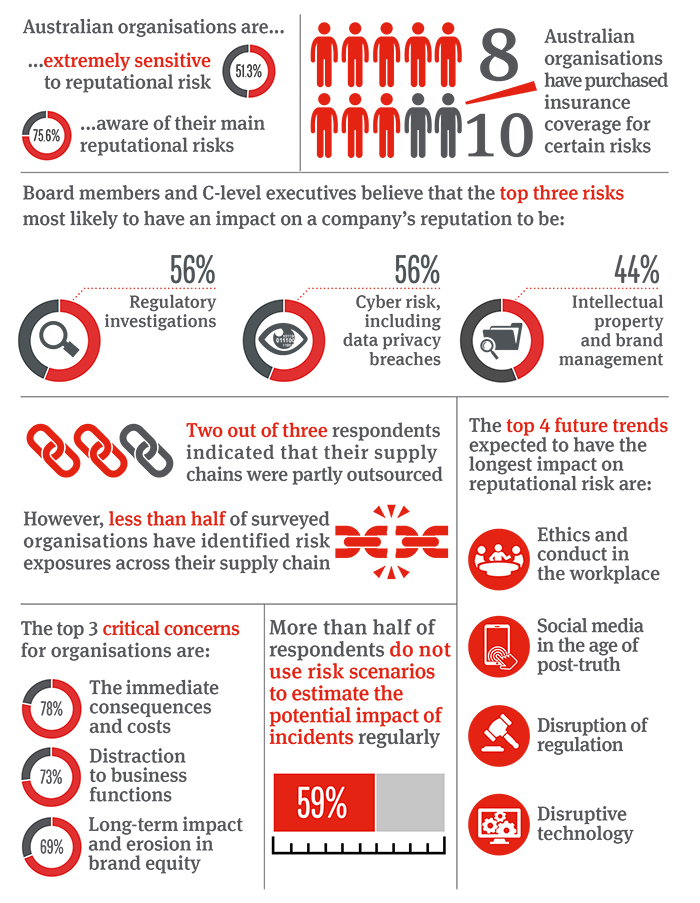Reputational Risk Australia - 2017 Survey Report
Australia | Publication | September 2017
Reputational capital is the new black. Faced with changing consumer preferences, growing public mistrust and social media powered news, business leaders are highly sensitive to the pivotal role reputation plays in the success of each company.
In 2017, Norton Rose Fulbright surveyed business leaders across Australia with regard to reputational risk, and what it means for their respective organisations. The results outline the high awareness and good knowledge of different exposures that could results in reputational damage, but also point to certain areas for improvement.

Several strategies can help businesses manage reputational risk more effectively, and strengthen compliance across their corporate cultures:
- Maintain an open dialogue between board members, the executive team, general counsel and risk managers in order to have a more accurate, multi-faceted view of potential reputational threats, and a fit-for-purpose mitigation plan.
- Stress-test policies and processes against real-world risk scenarios regularly, and embed the learnings for continuous improvement. Constant monitoring is a critical part of ensuring compliance.
- Organise regular training for exposures that can result in reputational damage, ranging from cyber risk to ethical conduct and diversity. This can help further embed organisational values in your culture, and foster a culture of compliance.
To find out more about what reputational risk means to Australian organisations and benchmark your business against your peers, read our full report.
For more information, contact one of our risk advisory experts below.
Associated resources
List of pages
Recent publications

Publication
Security of Payment Act trumps deemed service provisions
In Roberts Co (NSW) Pty Ltd v Sharvain Facades Pty Ltd (Administrators Appointed) [2025] NSWCA 161, the NSW Court of Appeal has found that, for the purposes of the Building and Construction Industry Security of Payment Act 1999 (NSW) (SoP Act), a deeming clause providing that a notice given after 5pm is to be treated as having been given and received at 9am on the next business day, does not extend the statutory time period for service of a payment schedule.

Publication
Australian offshore wind updates: July 2025
As the market matures and more projects are sited in close proximity to one another, we have observed an increase in “wind theft” or “wake effect” related disputes between European offshore wind projects in recent years.
Publication
Brief update on the Omnibus: CSRD and CS3D simplification – negotiating positions
The ‘Omnibus package’ is due to be negotiated by the European Parliament and the Council. When initially published by the European Commission on 26 February 2025 (see our previous publication on this here), the Omnibus instantly drew attention in light of the significant changes it sought to introduce to the EU Corporate Sustainability Reporting Directive (CSRD) and the Corporate Sustainability Due Diligence Directive (CS3D).
Subscribe and stay up to date with the latest legal news, information and events . . .












